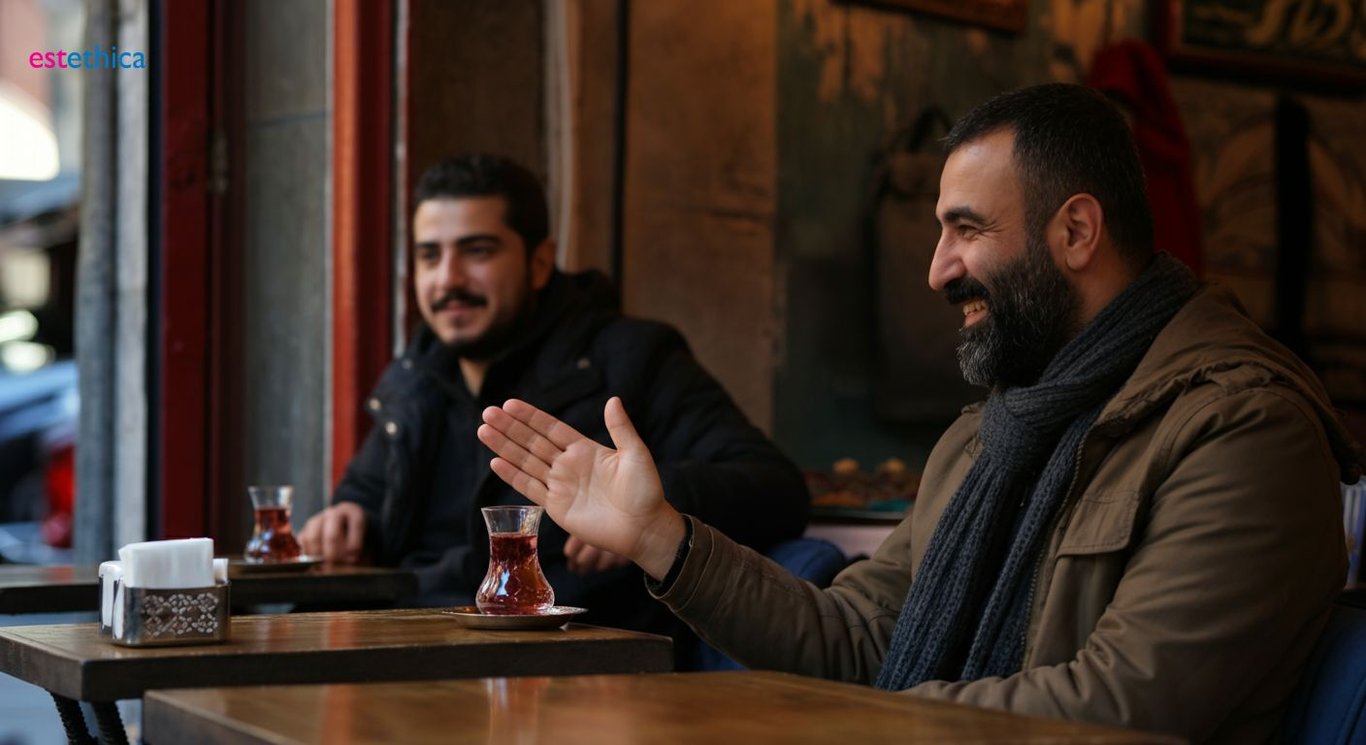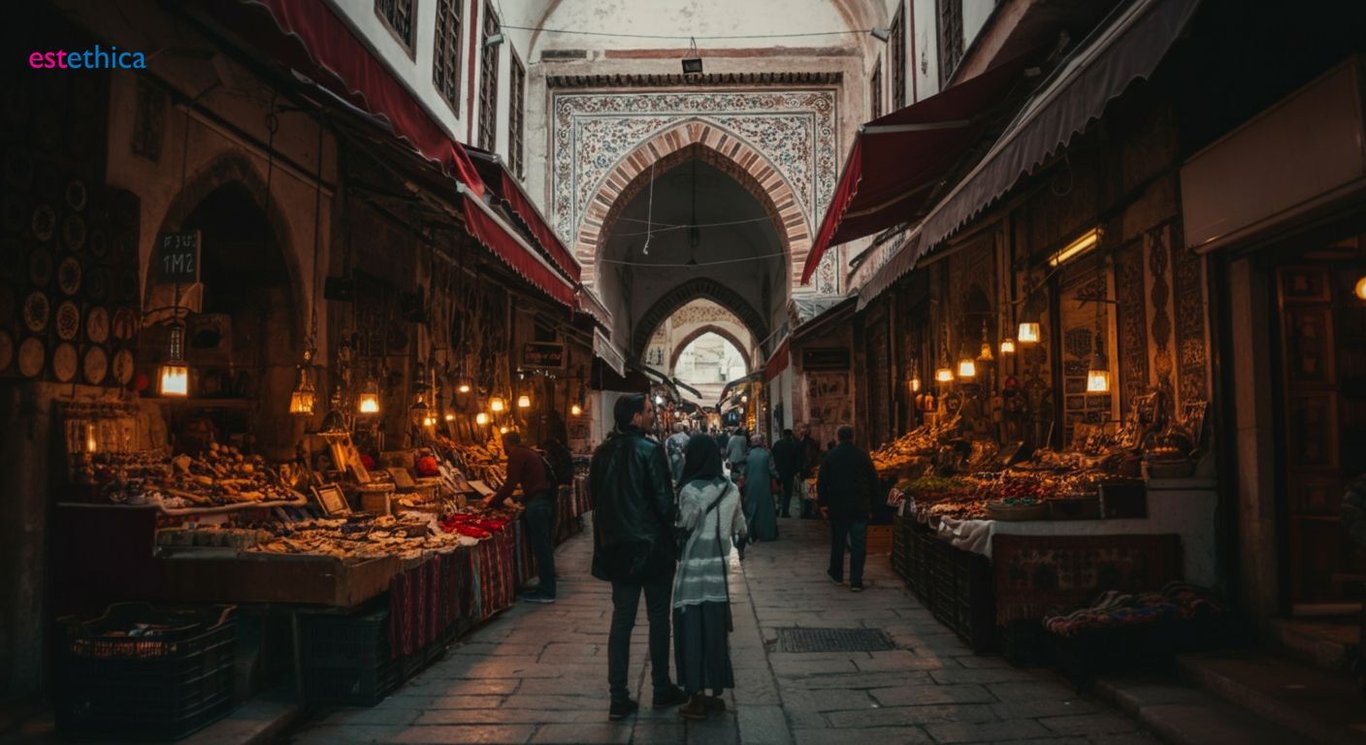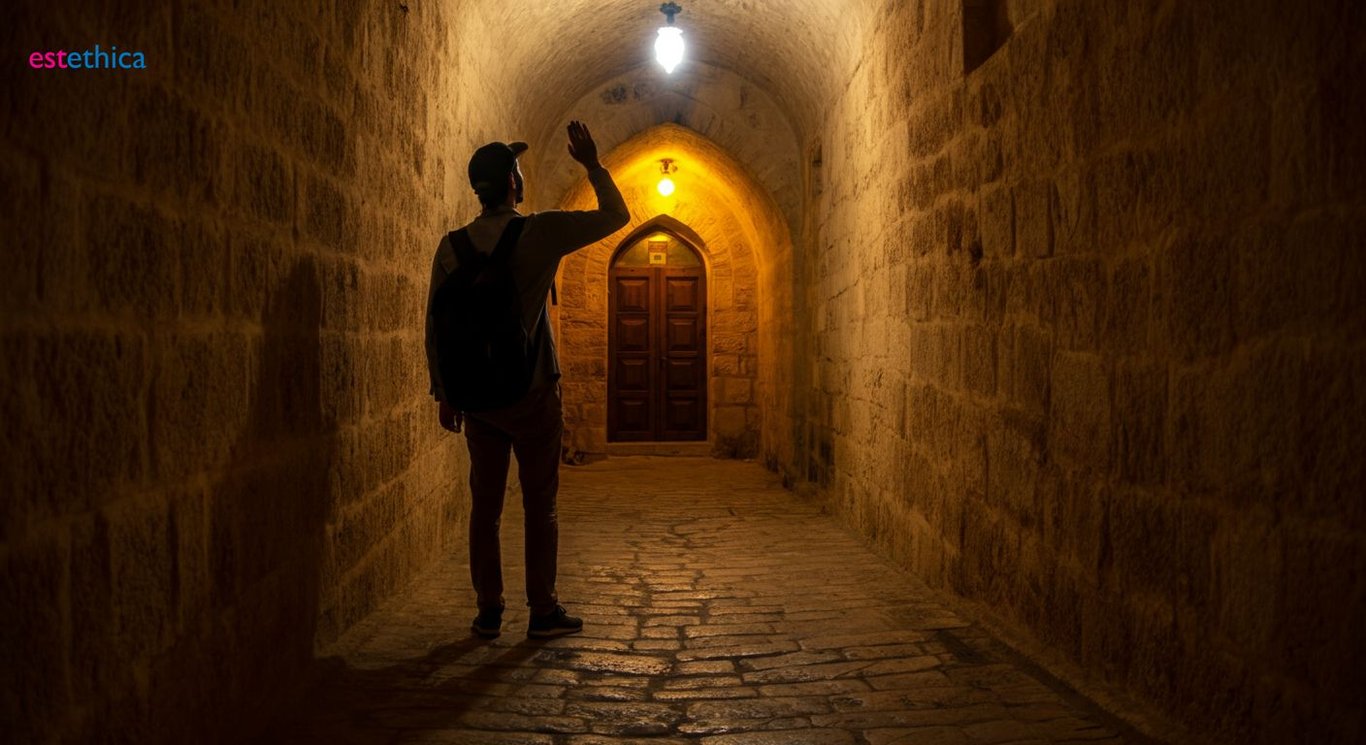Merhaba! Unlocking the Meaning of this Turkish Greeting
Unlock the global linguistic charm and connect with Turkish culture through the universal greeting 'Merhaba'. Learn more here!
In the vibrant and diverse world of languages, greetings serve as a perfect icebreaker to establish connections and embrace cultural diversity. One such fascinating greeting is "Merhaba", a word deeply entrenched in Turkish culture. Beyond just saying "hello," Merhaba weaves its way into multiple facets of interaction, shining through in various scenarios across Turkey and even globally. This blog will not only provide an in-depth exploration of 'Merhaba' but also extend into examining other Turkish greetings, pronouncing and using them accurately, and recognizing the significance of these greetings in different contexts around the world.
Merhaba 101: What Does It Really Mean?
The Cultural Depth of "Merhaba"
Merhaba, at first glance, might just seem like a simple "hello," but it encompasses much more. Stemming from the Arabic root 'R-H-B', which implies "to widen," Merhaba signifies a welcoming spirit, embodying concepts of hospitality, friendliness, and goodwill prevalent in Turkish culture. This depth mirrors other cultural nuances, much like understanding Mastering SEO: Braces in Keyword Strategy helps in navigating online visibility.
Essentially, when one uses Merhaba, they are not just offering a greeting but extending a cordial hand, indicative of an openness to communication. Historically, this greeting heralded peace among different tribes and communities, acting as a bridge over potential divides. Therefore, it’s not just a casual greeting; it is a warm invitation to conversation, often transcending the barriers of language and culture.Imagine how the use of retainers maintains the smile.
The use of Merhaba is prevalent in various contexts, from everyday interactions in bustling Istanbul to more formal settings in Ankara, shining as a testament to Turkey’s cohesive social fabric. Similar to how braces help align teeth, Merhaba aligns people, fostering social harmony.
When and How to Use Merhaba Effectively
Understanding when and how to use Merhaba can significantly enhance social interactions in Turkey. The greeting is versatile, suitable for both formal and informal settings. When addressing elders or individuals in positions of authority, using "Merhaba" followed by their title (e.g., "Merhaba Hocam" for a teacher) demonstrates respect.
- Formal Settings: In business meetings or official events, Merhaba sets a respectful tone, initiating conversations with a welcoming gesture.
- Informal Gatherings: Among friends and family, Merhaba is a casual yet warm way to start interactions, fostering a sense of closeness.
- Everyday Encounters: Whether in shops or on the street, using Merhaba shows politeness and cultural awareness, similar to acknowledging someone’s efforts after removing teeth for braces.
Beyond the spoken word, a smile and direct eye contact accompany the greeting, enhancing its sincerity. For instance, saying "Merhaba" while visiting a local bazaar can create a more engaging and pleasant shopping experience, akin to the satisfaction of seeing aligned teeth after braces removal.
- Using it with a smile
- Make eye contact during greetings
- Adjusting formality depending on the location

Beyond Hello: Exploring Various Turkish Greetings
Navigating Formal and Informal Turkish Greetings
While Merhaba is a versatile greeting, Turkish offers many other ways to say "hello." Understanding the nuances of these greetings is key to navigating social situations effectively. From the tender "Günaydın," meaning "Good Morning," used as the sun rises, to the less common yet charming "Tünaydın," for "Good Afternoon," the choices vary based on the time of day and context, just as different types of braces offer solutions tailored to unique orthodontic needs.
Formal settings, especially with strangers or in business environments, require more respectful greetings. "İyi günler" (Good Day) and "İyi akşamlar" (Good Evening) are etiquette-approved options, ensuring a polished first impression. These formal greetings are akin to the professional service provided at estethica, where specialists ensure treatments like invisible aligners are perfectly suited to each patient.
Regional variations, such as "Selamün Aleyküm," common among religious or traditional communities, reflect Turkey's rich historical tapestry. Embracing these diverse greetings not only enriches one's linguistic capabilities but also paves avenues for experiencing genuine Turkish warmth and hospitality, much like the welcoming atmosphere at estethica, where patients feel comfortable discussing options like removing teeth for braces.
Regional and Contextual Alternatives to Merhaba
Turkish greetings extend beyond standard phrases, adapting to various regions and social contexts. The more formal "İyi günler" is a safe choice during daylight hours when interacting with someone for the first time, providing a respectful start. Likewise, "İyi akşamlar" serves well in the evenings, fitting circumstances like attending a performance or entering a restaurant, similar to the careful application of retainers to maintain teeth alignment after orthodontic treatment.
- "Günaydın": Best used in the morning, this phrase is similar to saying, "Good Morning!"
- "İyi günler": Appropriate for daytime interactions, offering a polite "Good Day."
- "İyi akşamlar": Reserved for evenings, conveying a respectful "Good Evening."
In more traditional or religious scenarios, "Selamün Aleyküm," an Arabic-derived greeting, is common, especially among elders or in conservative groups. Understanding these nuances not only enhances communication but also shows cultural respect, ensuring smooth and meaningful interactions, much like the attentive care provided during braces removal at estethica.
- "Selamün Aleyküm" in religious settings
- "Merhaba" showing generalized respect
- "Günaydın" is mainly for morning greetings

Mastering Merhaba: Pronunciation and Spelling Guide
Achieving Accurate Pronunciation of Merhaba
Pronouncing Merhaba correctly is essential for those wishing to establish genuine connections. While English speakers may find the pronunciation straightforward, emphasizing the middle syllable, 'heh,' can make it sound much more authentic. It's pronounced as 'mehr-hah-bah,' with a slight roll on the 'r.' Mastering the phonetic nuances of Merhaba is akin to ensuring precision in treatments, similar to how estethica focuses on braces removal to protect dental health.
Pay attention to the subtleties that add depth to your pronunciation. Mispronouncing greetings can sometimes lead to misunderstandings or diminished cultural sensitivity. Therefore, focusing on the correct enunciation of Merhaba showcases respect and a genuine interest in Turkish culture. For example, just as careful planning is essential when implementing SEO strategies for braces, ensuring the clarity and accuracy of pronouncing Merhaba helps build stronger relationships.
Consistent practice, perhaps mirroring native speakers, contributes significantly to perfecting pronunciation. Much like fitting retainers perfectly to maintain tooth alignment, frequent vocal exercises can refine your verbal dexterity.
Essential Spelling Tips for Merhaba
Spelling-wise, ensure not to omit or incorrectly place vowels, as this can alter the word’s essence. Practicing this not only aids in verbal communication but also in writing, an asset for those involved in digital marketing or international business interactions. Mastering the nuances of Merhaba reinforces respect and understanding, key pillars of any cross-cultural exchange. Correct spelling showcases attention to detail, vital in both personal interactions and professional contexts, similar to the precise planning in removing teeth for braces.
- Double-check vowel placement: Ensure that each vowel is in the correct order, especially in written correspondence.
- Use reliable resources: Consult dictionaries or language learning apps for spelling confirmation.
- Practice regularly: Frequent writing exercises will reinforce the correct spelling in both formal and informal settings.
For those involved in international business or digital marketing, accurate spelling is particularly crucial, as it impacts credibility and professionalism. Remember, even minor errors can change the perception of your message, emphasizing the need for precision, akin to perfectly fitting invisible aligners for optimal teeth straightening at estethica. This skill extends beyond mere correctness, fostering an appreciation for the language’s subtleties.
- Regularly writing the word
- Utilizing online resources to verify spelling
- Seeking feedback from native speakers

Merhaba Around the World: Using Turkish Greetings in Different Contexts
Merhaba's Cultural Kinship Beyond Borders
Venturing beyond Turkey, Merhaba showcases its adaptability, resonating with diverse yet culturally aligned audiences. In many European nations, stemming from frequent migration and tourism, Merhaba is understood as a friendly salutation, reflecting social integrations. In Middle Eastern countries, the greeting echoes similar Arabic expressions, kindling a familiar sense of welcome. This integration mirrors estethica's approach to personalized care, akin to tailoring retainers for individual patient needs after treatments like removing teeth for braces.
Across continents, Merhaba exemplifies cultural diplomacy, fostering connection and mutual respect among people of diverse origins. For instance, in cities like Berlin or Paris, hearing a casual "Merhaba" among travelers is not uncommon, signaling a mutual recognition of Turkish influence. This phenomenon is quite like the universal appeal of a confident smile, often enhanced by treatments with braces or invisible aligners.
In global business contexts, initiating a conversation with Merhaba can be particularly impactful, creating rapport and signaling respect for Turkish colleagues or clients. estethica, similarly, bridges gaps by offering diverse cutting-edge treatments, from traditional braces to advanced invisible aligners.
Enhancing Global Interactions with Merhaba
When incorporated into your communications, Merhaba not only cultivates a favorable impression but also simplifies interactions with Turkish-speaking counterparts, thereby broadening professional networks and nurturing closer individual bonds. The gesture often transcends mere politeness, opening doors to deeper cultural understanding and collaboration.
- During international conferences: Use Merhaba to initiate conversations and show respect for Turkish attendees.
- In business negotiations: Employing Merhaba can help establish rapport and build trust with Turkish partners.
- While traveling: Greet locals with Merhaba to enhance your interactions and experiences in Turkish-speaking regions.
Consider, for instance, a scenario where a business delegate greets their Turkish counterpart with "Merhaba" during an international summit; this immediately sets a tone of respect and cultural sensitivity, enhancing the chances of a productive engagement. This gesture echoes the dedication to aesthetics displayed in treatments like invisible aligners.
- Increased Cultural sensitivity
- Expanded Network of partnerships
- Improved intercultural communication
Mastering Cross-Cultural Communication Through Turkish Greetings
Enhancing Interpersonal Connections through Authentic Communication
Frequently Asked Questions
What does Merhaba mean in Turkish and when should I use this welcome greeting?
How do you spell Merhaba, and what's the best way to ensure accurate pronunciation?
Are there formal greetings in Turkish, and how do they compare to using "Merhaba"?
Why say Merhaba when traveling or interacting with Turkish speakers globally?
What is the cultural significance of saying Merhaba in Turkish culture?
Ready for a healthier, more beautiful you? We offer personalized consultations to discuss your aesthetic goals.
📞 Schedule Your Free Consultation!